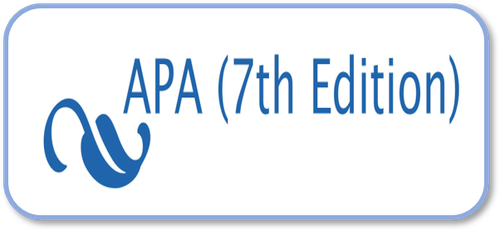Ethical Leadership and Knowledge Hiding behavior: Mechanism Moral Identity
DOI:
https://doi.org/10.24912/jm.v26i2.858Abstract
Referring to the theory of social exchange, this study examined the direct and indirect relationship between ethical leadership and knowledge hiding behavior through the mechanisms of moral identity. This study uses a quantitative method using 64 respondents permanent lecturers in education institution of Persada Bunda. The results show that ethical leadership is negatively associated with knowledge hiding behavior either directly or through the mechanisms of moral identity. It also shows that ethical leadership has a positive relationship with moral identity, while moral identity has a negative relationship with knowledge hiding behavior. The findings also outline the moral identity mediate the influence of ethical leadership on knowledge hiding behavior. It also explained that ethical leaders with high personality, honesty, morality. and high reliability and understand their impact on employees, can be role models in behavior and form employee moral self-construction such as moral identity.
References
Abdillah, M. R. (2021). Leader Humor and Knowledge Sharing Behavior: The Role of Leader-Member Exchange. Jurnal Manajemen, 25(1), 76. https://doi.org/10.24912/jm.v25i1.704
Abdillah, M. R., Wu, W., & Anita, R. (2020). Can altruistic leadership prevent knowledge-hiding behaviour? Testing dual mediation mechanisms. Knowledge Management Research and Practice, 00(00), 1–15. https://doi.org/10.1080/14778238.2020.1776171
Abdullah, M. I., Dechun, H., Ali, M., & Usman, M. (2019). Ethical leadership and knowledge hiding: A moderated mediation model of relational social capital, and instrumental thinking. Frontiers in Psychology, 10(OCT). https://doi.org/10.3389/fpsyg.2019.02403
Anita, R., Abdillah, M. R., & Zakaria, N. B. (2021). Authentic leader and internal whistleblowers: testing a dual mediation mechanism. International Journal of Ethics and Systems, 37(1), 35–52. https://doi.org/10.1108/IJOES-03-2020-0036
Anser, M. K., Ali, M., Usman, M., Rana, M. L. T., & Yousaf, Z. (2021). Ethical leadership and knowledge hiding: an intervening and interactional analysis. Service Industries Journal, 41(5–6), 307–329. https://doi.org/10.1080/02642069.2020.1739657
Aquino, K., & Americus, R. (2002). The self-importance of moral identity. Journal of Personality and Social Psychology, 83(6), 1423–1440. https://doi.org/10.1037/0022-3514.83.6.1423
Aquino, K., Freeman, D., Reed, A., Lim, V. K. G., & Felps, W. (2009). Testing a Social-Cognitive Model of Moral Behavior: The Interactive Influence of Situations and Moral Identity Centrality. Journal of Personality and Social Psychology, 97(1), 123–141. https://doi.org/10.1037/a0015406
Arfi, L. R., & Rahmat, A. (2020). Job Insecurity dan Abusive Supervision (Peran Moderasi Sosial Worth). Jurnal Manajemen Dan Bisnis Terapan, 2(2), 113–122.
Bavik, A., & Bavik, Y. L. (2015). Effect of employee incivility on customer retaliation through psychological contract breach: The moderating role of moral identity. International Journal of Hospitality Management, 50, 66–76. https://doi.org/10.1016/j.ijhm.2015.07.011
Brown, M. E., & Treviño, L. K. (2014). Do role models matter? An investigation of role modeling as an antecedent of perceived ethical leadership. Journal of Business Ethics, 122(4), 587–598. https://doi.org/10.1007/s10551-013-1769-0
Brown, M. E., Treviño, L. K., & Harrison, D. A. (2005). Ethical leadership: A social learning perspective for construct development and testing. Organizational Behavior and Human Decision Processes, 97(2), 117–134. https://doi.org/10.1016/j.obhdp.2005.03.002
Budur, T., & Poturak, M. (2021). Transformational leadership and its impact on customer satisfaction. Measuring mediating effects of organisational citizenship behaviours. Middle East J. of Management, 8(1), 67. https://doi.org/10.1504/mejm.2021.111997
Cheryan, S., & Bodenhausen, G. V. (2000). When Positive Stereotypes Threaten Intellectual Performance: The Psychological Hazards of “Model Minority” Status. Psychological Science, 11(5), 399–402. https://doi.org/10.1111/1467-9280.00277
Cohen, A. (2016). Are they among us? A conceptual framework of the relationship between the dark triad personality and counterproductive work behaviors (CWBs). Human Resource Management Review, 26(1), 69–85. https://doi.org/10.1016/j.hrmr.2015.07.003
Colina, S., Marrone, N., Ingram, M., & Sánchez, D. (2017). Translation Quality Assessment in Health Research: A Functionalist Alternative to Back-Translation. Evaluation and the Health Professions, 40(3), 267–293. https://doi.org/10.1177/0163278716648191
Connelly, C. E., Černe, M., Dysvik, A., & Škerlavaj, M. (2019). Understanding knowledge hiding in organizations. Journal of Organizational Behavior, 40(7), 779–782. https://doi.org/10.1002/job.2407
Connelly, C. E., & Zweig, D. (2015). How perpetrators and targets construe knowledge hiding in organizations. European Journal of Work and Organizational Psychology, 24(3), 479–489. https://doi.org/10.1080/1359432X.2014.931325
Cooper, C. D., Kong, D. T., & Crossley, C. D. (2018). Leader humor as an interpersonal resource: Integrating three theoretical perspectives. Academy of Management Journal, 61(2), 769–796. https://doi.org/10.5465/amj.2014.0358
Damon, W., Colby, A., & King, P. E. (2018). They do care: An interview with William Damon and Anne Colby on moral development. Journal of Moral Education, 47(4), 383–396. https://doi.org/10.1080/03057240.2018.1494972
DeConinck, J. B. (2015). Outcomes of ethical leadership among salespeople. Journal of Business Research, 68(5), 1086–1093. https://doi.org/10.1016/j.jbusres.2014.10.011
Den Hartog, D. N. (2015). Ethical Leadership. Annual Review of Organizational Psychology and Organizational Behavior, 2(December 2014), 409–434. https://doi.org/10.1146/annurev-orgpsych-032414-111237
Den Hartog, D. N., & Belschak, F. D. (2012). Work Engagement and Machiavellianism in the Ethical Leadership Process. Journal of Business Ethics, 107(1), 35–47. https://doi.org/10.1007/s10551-012-1296-4
Eva, N., Robin, M., Sendjaya, S., van Dierendonck, D., & Liden, R. C. (2019). Servant Leadership: A systematic review and call for future research. Leadership Quarterly, 30(1), 111–132. https://doi.org/10.1016/j.leaqua.2018.07.004
Feng, J., & Wang, C. (2019). Does abusive supervision always promote employees to hide knowledge? From both reactance and COR perspectives. Journal of Knowledge Management, 23(7), 1455–1474. https://doi.org/10.1108/JKM-12-2018-0737
Hardy, S. A., Bhattacharjee, A., Reed, A., & Aquino, K. (2010). Moral identity and psychological distance: The case of adolescent parental socialization. Journal of Adolescence, 33(1), 111–123. https://doi.org/10.1016/j.adolescence.2009.04.008
Inceoglu, I., Thomas, G., Chu, C., Plans, D., & Gerbasi, A. (2018). Leadership behavior and employee well-being: An integrated review and a future research agenda. Leadership Quarterly, 29(1), 179–202. https://doi.org/10.1016/j.leaqua.2017.12.006
Lapsley, D. (2015). Moral identity and developmental theory. Human Development, 58(3), 164–171. https://doi.org/10.1159/000435926
Lu, C. S., & Lin, C. C. (2014). The Effects of Ethical Leadership and Ethical Climate on Employee Ethical Behavior in the International Port Context. Journal of Business Ethics, 124(2), 209–223. https://doi.org/10.1007/s10551-013-1868-y
Mallén, F., Chiva, R., Alegre, J., & Guinot, J. (2015). Are altruistic leaders worthy? The role of organizational learning capability. International Journal of Manpower, 36(3), 271–295. https://doi.org/10.1108/IJM-09-2013-0212
Matsuba, M. K., Murzyn, T., & Hart, D. (2011). A model of moral identity. Applications for education. In Advances in Child Development and Behavior (1st ed., Vol. 40). Elsevier Inc. https://doi.org/10.1016/B978-0-12-386491-8.00005-0
Men, C., Fong, P. S. W., Huo, W., Zhong, J., Jia, R., & Luo, J. (2020). Ethical Leadership and Knowledge Hiding: A Moderated Mediation Model of Psychological Safety and Mastery Climate. Journal of Business Ethics, 166(3), 461–472. https://doi.org/10.1007/s10551-018-4027-7
Newman, A., Schwarz, G., Cooper, B., & Sendjaya, S. (2017). How Servant Leadership Influences Organizational Citizenship Behavior: The Roles of LMX, Empowerment, and Proactive Personality. Journal of Business Ethics, 145(1), 49–62. https://doi.org/10.1007/s10551-015-2827-6
One, B., & Rahmat, A. (2022). Altruistic Leadership and Organizational Citizenship Behavior : Mediating Role of Leader-Member Exchange. 1(1), 1–8.
Pletti, C., Decety, J., & Paulus, M. (2019). Moral identity relates to the neural processing of third-party moral behavior. Social Cognitive and Affective Neuroscience, 14(4), 435–445. https://doi.org/10.1093/scan/nsz016
Prayetno, J., & Rasyid, M. (2022). Interpersonal Conflict and Knowledge-Hiding Behavior : Mediating Role of Perceived Competition. 1(1), 10–15.
Reed, A., & Aquino, K. F. (2003). Moral Identity and the Expanding Circle of Moral Regard Toward Out-Groups. Journal of Personality and Social Psychology, 84(6), 1270–1286. https://doi.org/10.1037/0022-3514.84.6.1270
Rhee, Y. W., & Choi, J. N. (2017). Knowledge management behavior and individual creativity: Goal orientations as antecedents and in-group social status as moderating contingency. Journal of Organizational Behavior, 38(6), 813–832. https://doi.org/10.1002/job.2168
Schaubroeck, J. M., Hannah, S. T., Avolio, B. J., Kozlowski, S. W. J., Lord, R. G., Treviño, L. K., Dimotakis, N., & Peng, A. C. (2012). Embedding ethical leadership within and across organization levels. Academy of Management Journal, 55(5), 1053–1078. https://doi.org/10.5465/amj.2011.0064
Sosik, J. J., Chun, J. U., & Zhu, W. (2014). Hang on to Your Ego: The Moderating Role of Leader Narcissism on Relationships Between Leader Charisma and Follower Psychological Empowerment and Moral Identity. Journal of Business Ethics, 120(1), 65–80. https://doi.org/10.1007/s10551-013-1651-0
TANG, P. M., BAVIK, Y. L., CHEN, Y. N., & TJOSVOLD, D. (2015). Linking ethical leadership to knowledge sharing and knowledge hiding : the mediating role of psychological engagement. 84, 71.
Taylor, S. G., & Pattie, M. W. (2014). When Does Ethical Leadership Affect Workplace Incivility? The Moderating Role of Follower Personality. Business Ethics Quarterly, 24(4), 595–616. https://doi.org/10.5840/beq201492618
Usman, M., & Abdul Hameed, A. (2017). The Effect of Ethical Leadership on Organizational Learning: Evidence from a Petroleum Company. Business & Economic Review, 9(4), 1–22. https://doi.org/10.22547/ber/9.4.1
Zaim, H., Demir, A., & Budur, T. (2021). Ethical leadership, effectiveness and team performance: an Islamic perspective. Middle East J. of Management, 8(1), 42. https://doi.org/10.1504/mejm.2021.111991
Zhao, H., & Xia, Q. (2019). Nurses’ negative affective states, moral disengagement, and knowledge hiding: The moderating role of ethical leadership. Journal of Nursing Management, 27(2), 357–370. https://doi.org/10.1111/jonm.12675
Downloads
Published
How to Cite
Issue
Section
License
Copyright (c) 2022 Jurnal Manajemen

This work is licensed under a Creative Commons Attribution-NonCommercial-ShareAlike 4.0 International License.
This journal provides immediate open access to its content on the principle that making research freely available to the public supports a greater global exchange of knowledge.

This work is licensed under a Creative Commons Attribution-NonCommercial-ShareAlike 4.0 International License



















